http://worldmuslimcongress.blogspot.com/2007/06/rabbis-on-israeli-occupation.html
The new Israel was larger but not safer, victorious but not secure.
— Rabbi Arnold Jacob Wolf
Peace is an outcome of Justice. Several Rabbi’s have touched on the subject in the following summary by Brit Tzedek v’Shalom, The Jewish Alliance for Justice and Peace. I would urge you to read each one of the link by the 10 writers below. Eight Rabbis, one Palestinian Christian and a Muslim have each contributed their thoughts on the eve of the 40th anniversary of occupation.
Truth ultimately triumphs. Those who harbor hate towards others may find salvation in finding out the truth, the history of Israel and Palestine…the suffering of two people, the deprivation of hope and the insecurities of survival have taken out the ability to foster goodwill and seek peace. They have passed the buck for over 4 generations and they cannot do this any more, they have to take the responsibility and bring peace. They cannot dump their problems to yet another generation.
The Jewish and Muslim communities are making all out efforts to bring peace to Israel and Palestine, however a majority of them go about living their daily lives, just as any other community. Stereo typing “all Jews” or “all Muslims” or “All xxxxxxx” must be refrained as that is the prime blockade for peace. We need to think, if each one of us wants the others to do the job, then we need to question the integrity of our own desire for peace.
If you instinctively blame one or the other, that is the first hurdle in peace making. Let peace begin with you and I. I ask you to honestly study the problem, it might open your heart and mind and give you some clarity. We need to sow the seeds of peace by removing prejudice one heart at a time.
It is just not a Jewish or a Muslim problem, it is the problem of whole humanity.
Mike Ghouse
The Rabbinic Cabinet of Brit Tzedek v’Shalom developed A Rabbinic Guide to 40 Years of Occupation for use in programming around the 40th anniversary of the Six-Day War and subsequent occupation. The collection is intended to help the American Jewish community reflect on the implications of Israel’s long occupation of territory captured in 1967. As many American Jews across the country mark the 40th anniversary, this guide, comprised of reflections by rabbis, Brit Tzedek leaders, and Palestinian-Americans about the impact of the occupation can help frame the discussions across the country. The rabbinic guide also includes a number of resources, including a detailed chronology of the occupation and a list of ideas for congregational tours of the region.
Selected Excerpts
We Have Only to Begin by Rabbi Arnold Jacob Wolf. I first visited Israel in 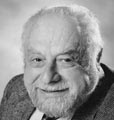 1962. My two young sons and I stayed on the border of a Jerusalem divided; we could look into the old city but could not go there. I wondered what it might be to live in a Jewish Jerusalem, not thinking much about the many Palestinians all around me. [read more]
1962. My two young sons and I stayed on the border of a Jerusalem divided; we could look into the old city but could not go there. I wondered what it might be to live in a Jewish Jerusalem, not thinking much about the many Palestinians all around me. [read more]
 Recreating a Symbol of Hope By Rabbi John Friedman In 2004, a beloved graduate of my religious school came to my study to discuss a problem he was facing at his Ivy League university. Andy had always been a committed supporter of Israel, and his attachment was augmented by an emotional six-week NFTY-in-Israel experience. Now, a few years later and after a college-level Jewish Studies course on Israeli history, Andy was having trouble attending Hillel events. [read more]
Recreating a Symbol of Hope By Rabbi John Friedman In 2004, a beloved graduate of my religious school came to my study to discuss a problem he was facing at his Ivy League university. Andy had always been a committed supporter of Israel, and his attachment was augmented by an emotional six-week NFTY-in-Israel experience. Now, a few years later and after a college-level Jewish Studies course on Israeli history, Andy was having trouble attending Hillel events. [read more]
Sights I Did Not Want to See; Feelings I Did Not Want to Feel by Rabbi Laurie Zimmerman A  few months before the second intifada began, I traveled to Gaza. I was studying for the year in Jerusalem and wanted to see the Israeli occupation with my own eyes. I had a clear idea of what it meant for Israelis, but I wanted to try to understand what it meant for Palestinians. [read more]
few months before the second intifada began, I traveled to Gaza. I was studying for the year in Jerusalem and wanted to see the Israeli occupation with my own eyes. I had a clear idea of what it meant for Israelis, but I wanted to try to understand what it meant for Palestinians. [read more]
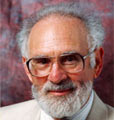 Needed: A Bold Response to Four Decades of Israeli Control of the West Bank by Rabbi Herbert Bronstein. As an American rabbi,I can’t help but feel that the occupation’s effect on American Jewry,our refusal to conduct a real dialogue, is among its most disturbing consequences. Criticism of Israeli policies – even when it arises from a Judaically-informed conscience – has been forcefully muted,and groups which endeavor to join pro-Israel stances with a social consciousness have been marginalized. Even in rabbinic organizations, discussions of these issues is often out-of-bounds. [read more]
Needed: A Bold Response to Four Decades of Israeli Control of the West Bank by Rabbi Herbert Bronstein. As an American rabbi,I can’t help but feel that the occupation’s effect on American Jewry,our refusal to conduct a real dialogue, is among its most disturbing consequences. Criticism of Israeli policies – even when it arises from a Judaically-informed conscience – has been forcefully muted,and groups which endeavor to join pro-Israel stances with a social consciousness have been marginalized. Even in rabbinic organizations, discussions of these issues is often out-of-bounds. [read more]
It Doesn’t Have to Be This Way by Saffiya Shillo Just before the 1967 war, my uncle arrived 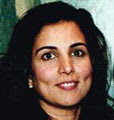 from the West Bank to my family’s Chicago home. He came to America to earn money for the wife and five children he had left behind, to give them a better life. Life was very difficult, he said. There was a sense of impending doom looming over our people since the 1948 Al-Nakba (“the catastrophe” in Arabic). [read more]
from the West Bank to my family’s Chicago home. He came to America to earn money for the wife and five children he had left behind, to give them a better life. Life was very difficult, he said. There was a sense of impending doom looming over our people since the 1948 Al-Nakba (“the catastrophe” in Arabic). [read more]
 How Long Are We Going to Get Banners and Trumpets? By Rabbi Joey Wolf In this passage from Jeremiah (4:21),the prophet laments the way the people flaunted the symbols of victory. In his mind, they celebrated a success that raised as many doubts as it brought vindication. In this sense, flattery and self-congratulation stand in the way of wisdom. [read more]
How Long Are We Going to Get Banners and Trumpets? By Rabbi Joey Wolf In this passage from Jeremiah (4:21),the prophet laments the way the people flaunted the symbols of victory. In his mind, they celebrated a success that raised as many doubts as it brought vindication. In this sense, flattery and self-congratulation stand in the way of wisdom. [read more]
40 Years of Deepening Spiritual Disorders: Can We Heal Them? by Rabbi Arthur Waskow 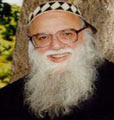 There are two profound spiritual disorders that underlie the stubborn and self-destructive attachment of Israel to the 40-year occupation of the West Bank,Gaza,and the Palestinian neighborhoods of East Jerusalem, and the similar attachment of some Palestinians to the use of violence to resist the occupation. [read more]
There are two profound spiritual disorders that underlie the stubborn and self-destructive attachment of Israel to the 40-year occupation of the West Bank,Gaza,and the Palestinian neighborhoods of East Jerusalem, and the similar attachment of some Palestinians to the use of violence to resist the occupation. [read more]
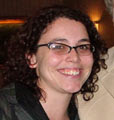 A Moment When We Learned How to Hope by Carinne Luck I went with my mum to see a play recently. The play, Journey’s End, is set in the trenches during WWI and presents the lives of a British company of soldiers living there, as they struggle with the inanity and insanities of war and share dreams for a future they know they will not see. The play is loud — the last three minutes consist of shelling sounds as the lights on the stage go down — and we know that the soldier-actors who have become our friends have not survived. [read more]
A Moment When We Learned How to Hope by Carinne Luck I went with my mum to see a play recently. The play, Journey’s End, is set in the trenches during WWI and presents the lives of a British company of soldiers living there, as they struggle with the inanity and insanities of war and share dreams for a future they know they will not see. The play is loud — the last three minutes consist of shelling sounds as the lights on the stage go down — and we know that the soldier-actors who have become our friends have not survived. [read more]
 Palestinians and Israelis Must “Go Back to the Future” by Ray HananiaThe 1967 war is more than just a bad memory. For Palestinians, it’s a benchmark that only reminds us that things continue to worsen, amemory that only feeds feelings of anguish and hatred and fuels the drive for revenge and vengeance. It’s a mental quagmire that cannot be resolved,a Gordian Knot that cannot be unraveled. For Arabs, moreover,the 1967 War is not just about occupation of Palestinian lands – it’s about the humiliation of being so firmly defeated by a state believed weak and transitory. [read more]
Palestinians and Israelis Must “Go Back to the Future” by Ray HananiaThe 1967 war is more than just a bad memory. For Palestinians, it’s a benchmark that only reminds us that things continue to worsen, amemory that only feeds feelings of anguish and hatred and fuels the drive for revenge and vengeance. It’s a mental quagmire that cannot be resolved,a Gordian Knot that cannot be unraveled. For Arabs, moreover,the 1967 War is not just about occupation of Palestinian lands – it’s about the humiliation of being so firmly defeated by a state believed weak and transitory. [read more]
 40 Years After the Six-Day War: The Enduring Legacy of the Seventh Day by Steven David MastersConventional wisdom has it that Israelis were slow to see this truth,and that in the heady days following the Six-Day War, only triumphant voices were heard, celebrating the lightning-fast vanquishing of surrounding Arab armies and conquest of Palestinian land. For Israeli society as a whole this may have been true, but it was not so for many of the very conquerors themselves, the combatants who fought and won the war. [read more]
40 Years After the Six-Day War: The Enduring Legacy of the Seventh Day by Steven David MastersConventional wisdom has it that Israelis were slow to see this truth,and that in the heady days following the Six-Day War, only triumphant voices were heard, celebrating the lightning-fast vanquishing of surrounding Arab armies and conquest of Palestinian land. For Israeli society as a whole this may have been true, but it was not so for many of the very conquerors themselves, the combatants who fought and won the war. [read more]
Brit Tzedek v’Shalom, The Jewish Alliance for Justice and Peace11 E. Adams Street, Suite 707Chicago, IL 60603Phone: (312) 341-1205Fax: (312) 341-1206 http://www.btvshalom.org/
